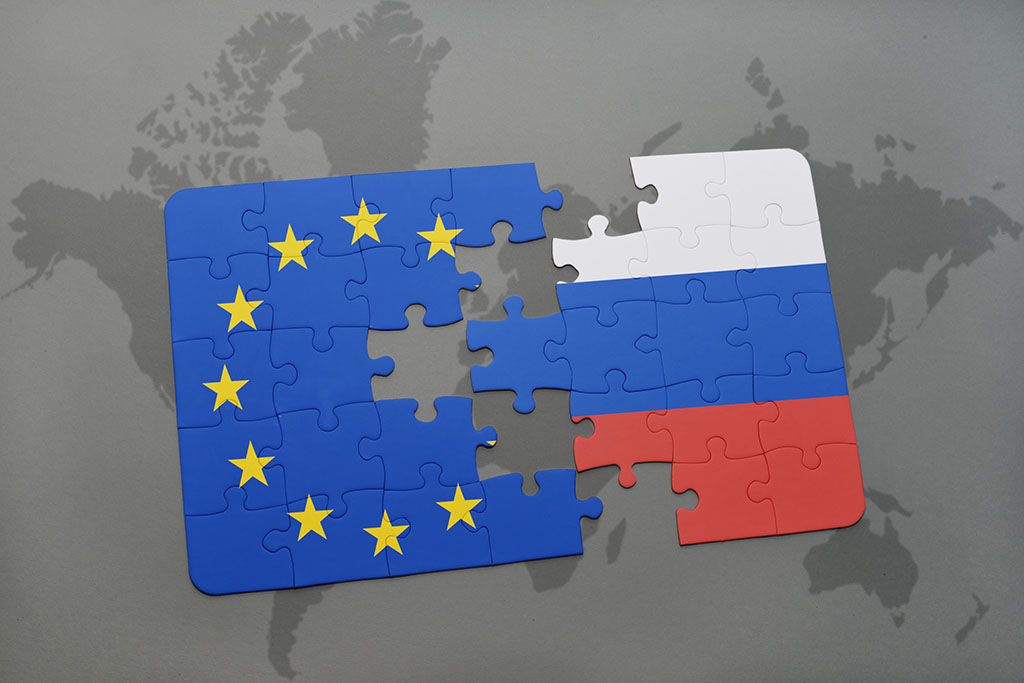Russian influence over Europe’s largest economy turned into a key issue during the recent NATO meeting in Brussels, when U.S. President Donald Trump called Germany “a captive of Russia,” on July 11. Trump was speaking in reference to the current debate about the building of the Nord Stream-2 natural gas pipeline that will deliver energy resources from northwestern Russia to northern Europe via the Baltic Sea; but he honed in on an issue of critical importance, namely Europe’s energy needs and the continent’s tense political relationship with a country that is resource rich.
“They [Germany] will be getting between 60 and 70 percent of their energy from Russia and a new pipeline, and you tell me if that is appropriate because I think it's not,” Trump said.
According to data from the BP Statistical Review of World Energy, Germany consumed 90.2 billion cubic meters (bcm) of natural gas in 2017, while production amounted to just 6.4 bcm, or nearly 14 times less than the demand. Germany’s share of Europe’s total gas consumption was 17 percent, and as the largest European natural gas consumer, it is is increasingly dependent on imports.
“Germany, as far as I’m concerned, is captive to Russia because it’s getting so much of its energy from Russia,” Trump said at breakfast with the NATO Secretary General Jens Stoltenberg.
“So we’re supposed to protect Germany,” Trump said, referring to Germany’s membership in NATO, “but they’re getting their energy from Russia.”
German Chancellor Angela Merkel politely responded to Trump’s words later in the day, saying that Germany, “can make our own policies and make our own decisions.”
Eurastat, the European Union’s statistical agency, estimates that Russia’s market share of German imports is between 50 and 75 percent. Nord Stream-2 is expected to add to that estimated range. Studies by Germany’s gas distribution company Wingas predicts that by 2020, consumption will increase up to 95 bcm in Germany, meaning that the country’s dependence on imported gas is set to only grow and, according to some analysts, allow Russia’s influence over Germany to grow with it.
As Europe’s domestic energy production falls, supplies from Russia play a central role in meeting the continent’s energy demand and guaranteeing its energy security. Therefore, the construction of the Nord Stream-2 gas pipeline that could deliver additional 110 bcm of Russian natural gas to Europe, has become a complicated geopolitical issue.
Germany’s officials say Russian gas is still its best option, in terms of a favorable transit route and affordability.
In 2017, Russia was the largest supplier of natural gas and petroleum to the EU, and ahead of Norway. According to the BP Statistical Review of World Energy, natural gas production in Europe reached 241.9 bcm in 2017, while consumption hit 531.7 bcm. Russian supplies accounted for 39 percent of Europe’s natural gas imports that year, while the rest is mainly imported from Norway and Algeria, according to the European Commission.
Amid a series of gas disputes over the past decade between Russia and Ukraine, Brussels set goals to diversify European energy sources to ensure reliable deliveries to Europe.
The Chief Executive Officer of the Russian energy giant Gazprom, Alexey Miller, said the company had completed record deliveries to Europe and the southern Mediterranean in 2017, totaling 194.4 bcm, or eight percent higher than that in 2016.
"If Europe's gas demand from Russia continues at the current rate, 2018 will end with a record level," Miller said at an event in June.
German and Austrian imports of Russian gas reached an historic high, and exports to France rose by 6.7 percent compared to 2016, according to Gazprom's figures.







 The Islamic holy month of fasting, Ramadan comes to an end this week with the celebration of a joyous festival called Eid (meaning “festival” in Ar...
The Islamic holy month of fasting, Ramadan comes to an end this week with the celebration of a joyous festival called Eid (meaning “festival” in Ar...
 Iran's senior military leaders described the drone and missile attack on Israel on April 14 night as “successful".
Iran's senior military leaders described the drone and missile attack on Israel on April 14 night as “successful".
 Azerbaijan officially unveiled the logo for the upcoming 29th session of the Conference of the Parties to the United Nations Framework Convention o...
Azerbaijan officially unveiled the logo for the upcoming 29th session of the Conference of the Parties to the United Nations Framework Convention o...
 Iranian President Ebrahim Raisi warned Israel that it would face a "real and extensive" response if it makes any "mistake" following Tehran’s missi...
Iranian President Ebrahim Raisi warned Israel that it would face a "real and extensive" response if it makes any "mistake" following Tehran’s missi...



